The Learning, Teaching, Training Activity (LTTA) Meeting in Jarna, Sweden had the focus on Sustainable Forestry, Selecting and Felling of Trees, Sawing and Planking, dovetailed with entrepreneurship ideas in rural areas and product marketing. Participants also had the opportunity to improve different competences such as intercultural or social competences.
The first day was an introduction to the LTTA with an overview of the complete project ‘Rural Entrepreneurship for You(th)’ and with a presentation of the participants from different partner organisations and their expertise.
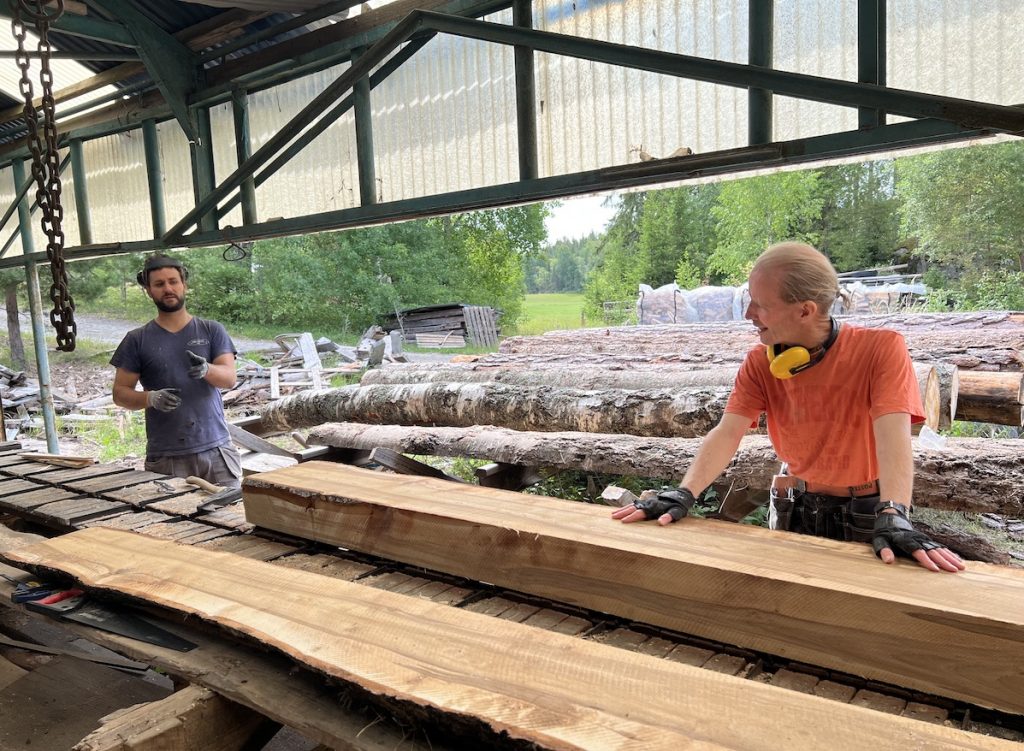
The saw miller of Almvik gave a description of the history of Almvik working with the forest and the sawmill and he also described the potential which was there then and which is here today. This set free ideas within the participating youth for local entrepreneurial possibilities in rural areas. He also mentioned that today’s huge companies almost everywhere outplaced small local forestry companies, but that the demand for wood gives chances even to small companies.
The concept of Sustainable Forestry was explained and one of the most important aspects of that is the Diversity in the forests. Monocultures fail when one kind of tree gets hit by a disease or bug, whereas diversity helps other trees to survive in such scenarios. How to work in the forest is also an important aspect considering Sustainable Forestry. Huge tractors crack roots and damage trees, whereas this will not happen when using oxen or horses for transportation of felled trees. Furthermore, trees are only felled when necessary.
Renowned fine woodworker Radha Sivyer from London, a young 25-year-old man, who is friend with one of our local youths, was invited to give workshops on Fine Woodwork together with our local young 20-year-old fine woodworker who just finished her high school on Fine Woodwork. Together they presented their expertise and Radha presented by his own example how to make a living with fine woodwork in a rural area. Radha profiles himself on Youtube, Facebook and Instagram, and gets his clients through these platforms. He has thus become famous all over Britain and took part in the TV-show “Britain’s best woodworker’ and others.
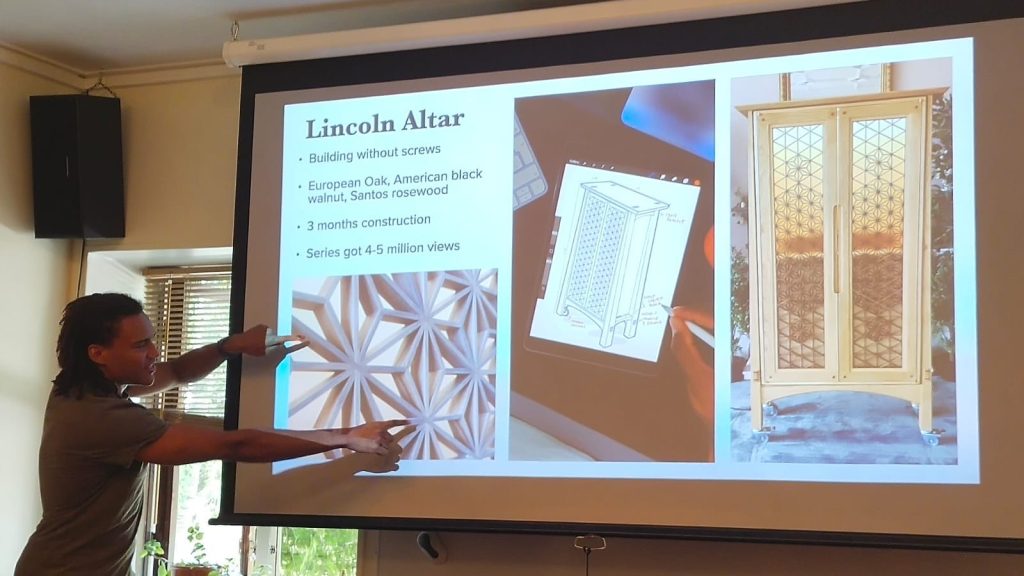
After the introduction, the participants went to the forest and got to learn how to saw a tree. They learned of what to consider when felling a tree, the importance of security, the different ways of sawing trees such as by hand or with a motor saw, and more. Then the sawmill was introduced and it was explained by professionals working at the Almvik sawmill, how to saw the tree to wood. Explanations about the marrow, the surface wood, or the outer bark were given. After the sawing, the wood has to dry and is thus piled in a way so that air can flow between the timber.
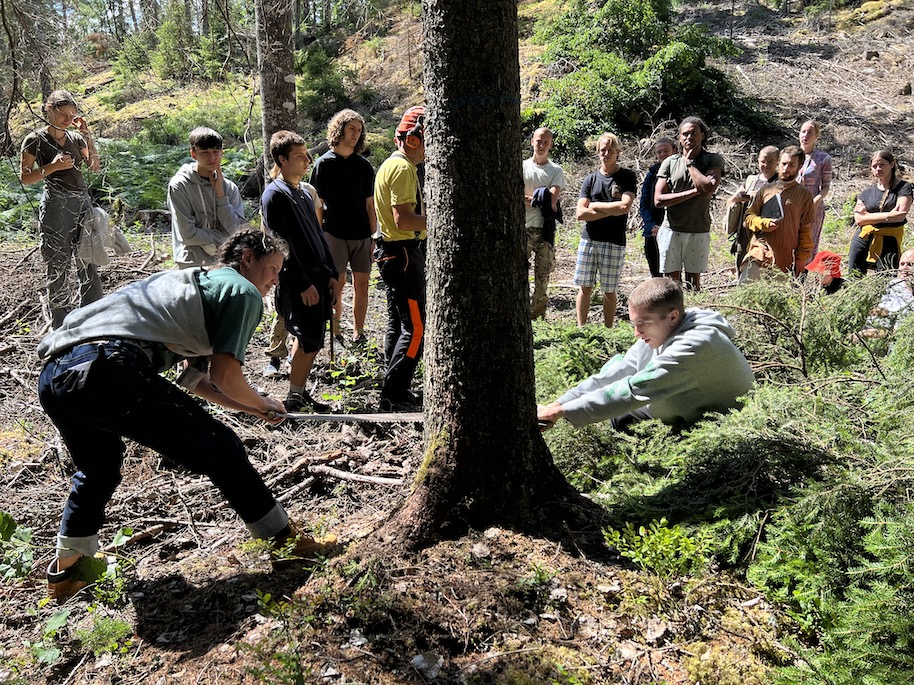
Radha Sivyer and Gita Merai, our fine woodworkers then met the participants to start with a practical workshop teaching how to make mullets for carving with chisels. Participants could learn how to use chisels and the mullet, what to take care of to harm oneself or others, and how to calculate the carving, and finally, how to carve. Under the guidance of Radha and Gita the participants started their tasks, assisted and helped each other, and took guidance from the two mentors. They produced own small signs for their homes, or instrument halters, or a small sitting table, and with combined efforts they even chiseled a 2-meter-long sign with the inscription ‘Almviks Gård’ which will be hung at the entrance of the village.
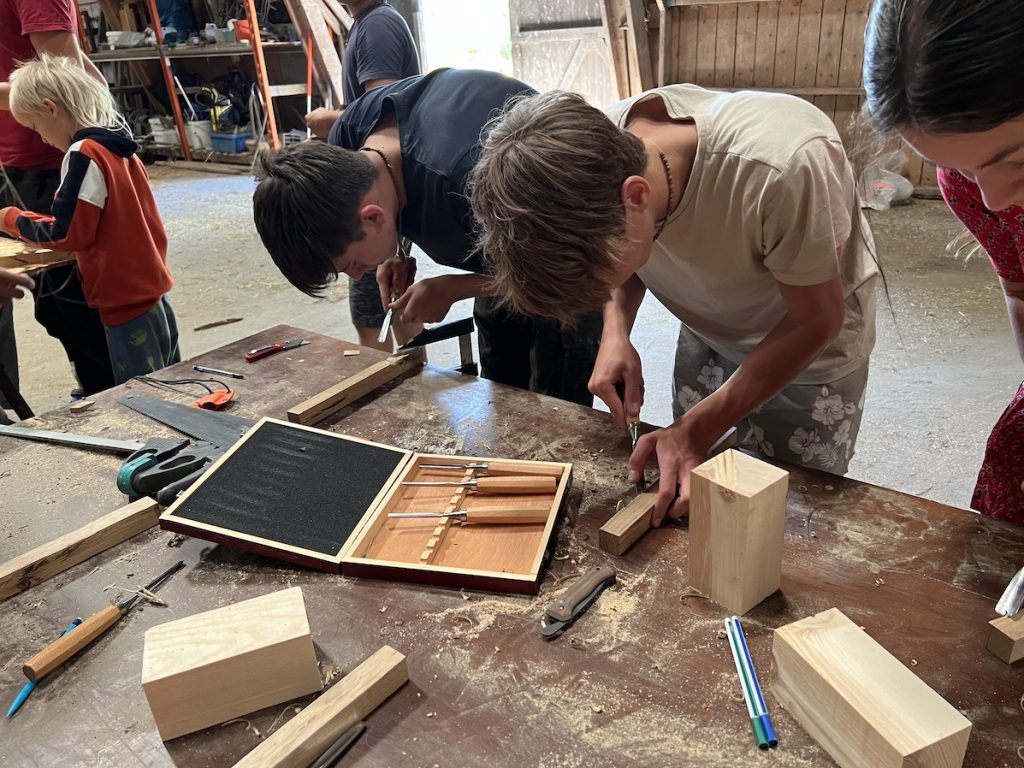
Although focus was given to Sustainable Forestry and Fine Woodwork, there were also planned visits with other local entrepreneurs to enhance ideas in the participants. Thus, they had the opportunity for a tour to the local artist, who maintains himself and his family with paintings on both canvas and wood. He explained that he regularly goes to fairs and exhibitions where he sells his products and that he also receives clients in his atelier.
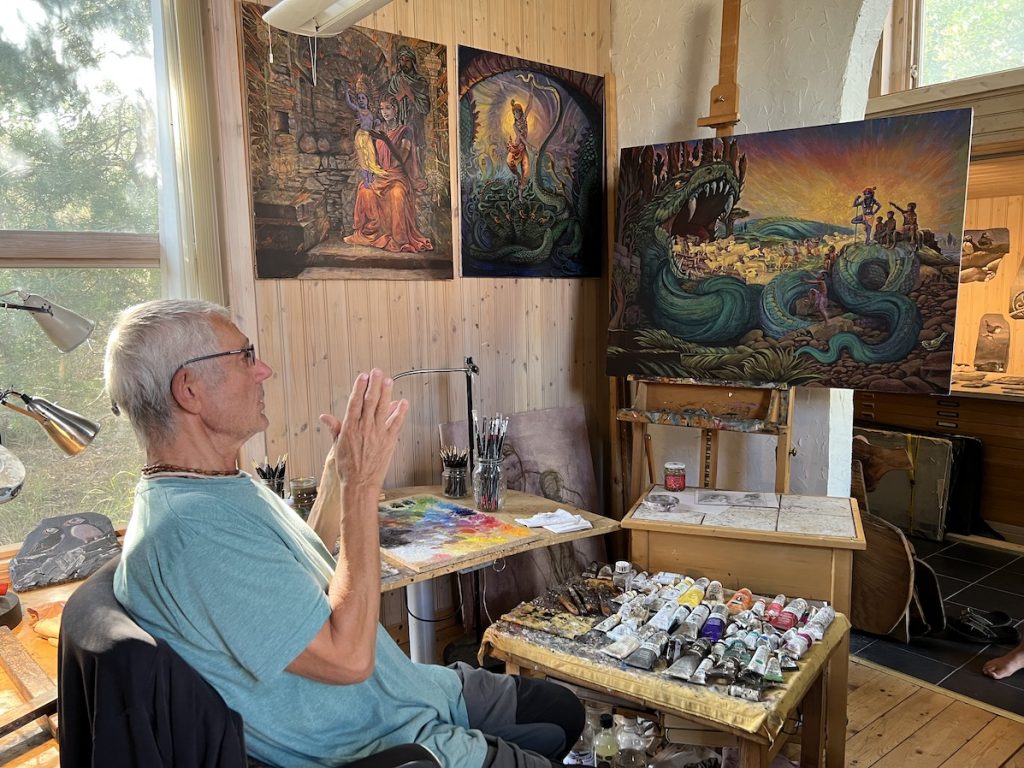
The participants also got to meet the local organic gardener who sells his groceries at the market in Stockholm. Furthermore, they could meet the baker who sells her organic breads and buns in shops in the village of Järna, and the nearby town Södertälje and on the market in Stockholm.
Another entrepreneur which they visited was the local construction company. The leader explained how he started his business a few years ago which is now running successfully. His focus is on eco-houses constructed with natural material including clay and straw, and lumber from the local forests. The participants also had the opportunity to visit an eco-house in Almvik.
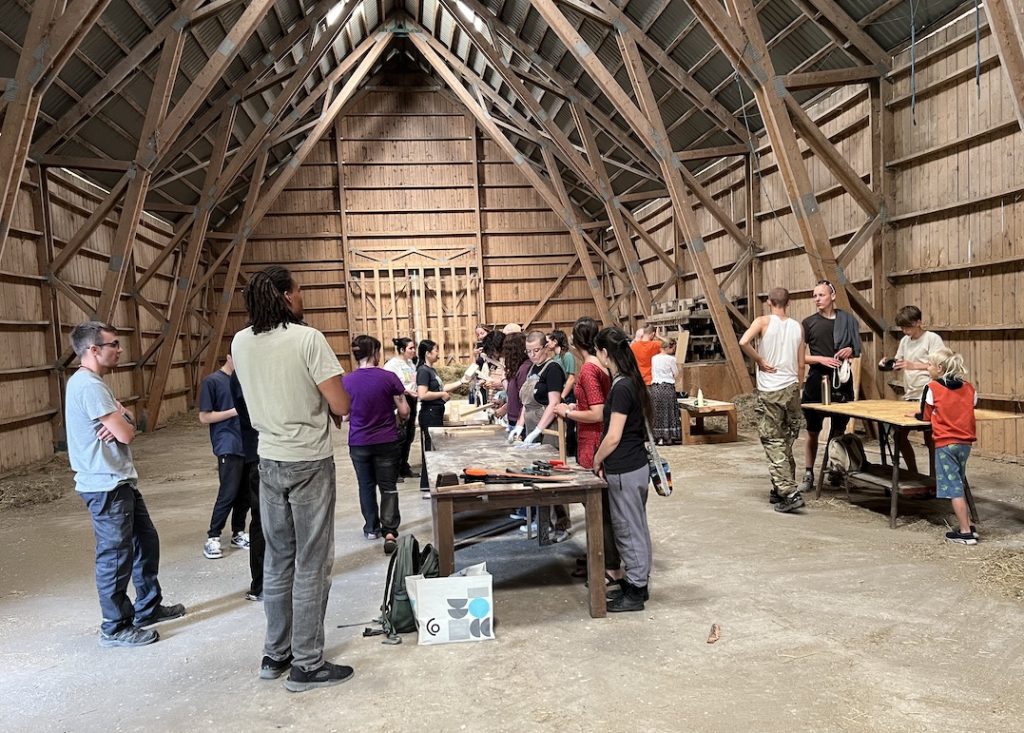
The LTTA offered participants different ideas and knowledge which support, promote and inspire self-reliant, sustainable living and youth entrepreneurship in rural areas, and therefore enhance youth employment in rural areas in partnership countries and beyond.
Through the practical workshops the participants furthermore could develop new practical skills and also competences in the area of forestry and fine woodwork, green jobs and even jobs connected to media by seeing how Radha Sivyer runs his business and gets his clients through social media channels.
Using natural material, showing an eco-friendly lifestyle in the eco-village with vegetarian diets, organic gardening, sustainable forestry and more promoted a sustainable, eco-friendly, healthy and balanced lifestyle to the young participants.
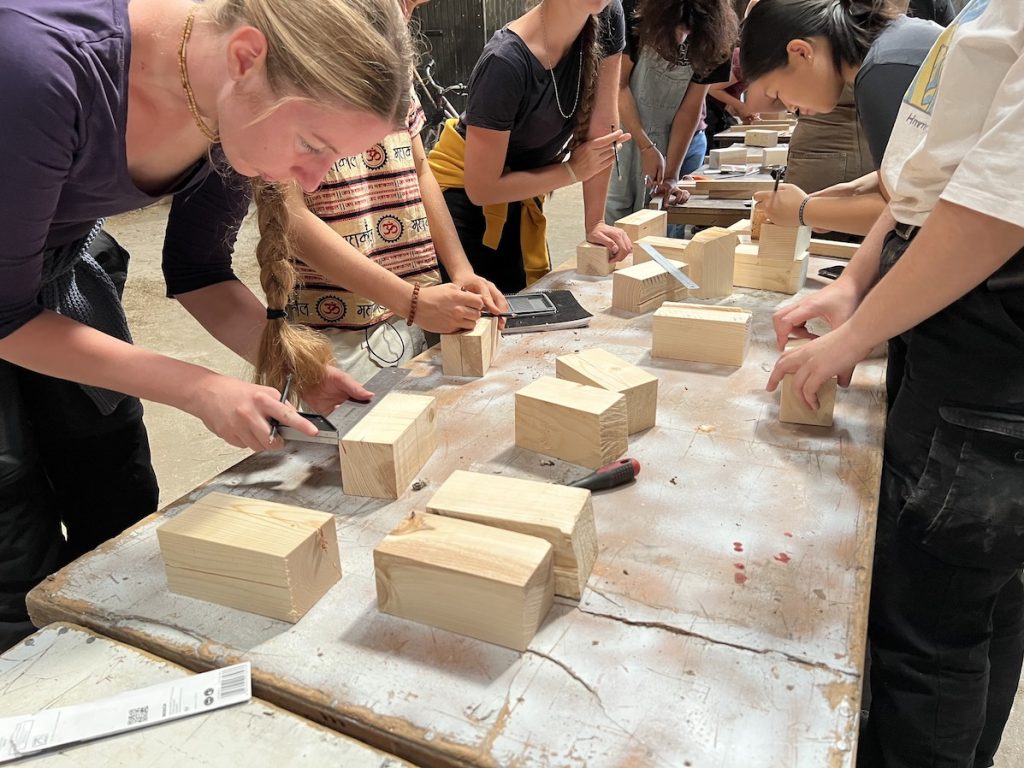
The participants exceeded beyond the official number of 16 (2 young adults from 8 countries) to 25. One interested young woman from Austria who just finished her carpentry apprenticeship asked to participate, as well as one more young man from Italy, and several local young men and women were interested to take part. This shows that the interest in this field was vast. By having the LTTA open for all interested young people, we also promoted social inclusion.
In the evenings, international participants and local youth gathered and had cultural evenings with music and singing at the bonfire, or playing games together. They also helped to cook the three daily meals, or they did Jiu-jitsu or yoga and meditation, or visited Stockholm together. This enhanced their intercultural experience, improved their cultural and social competences, created appreciation, tolerance and awareness of different cultures, as well as created friendships beyond borders.
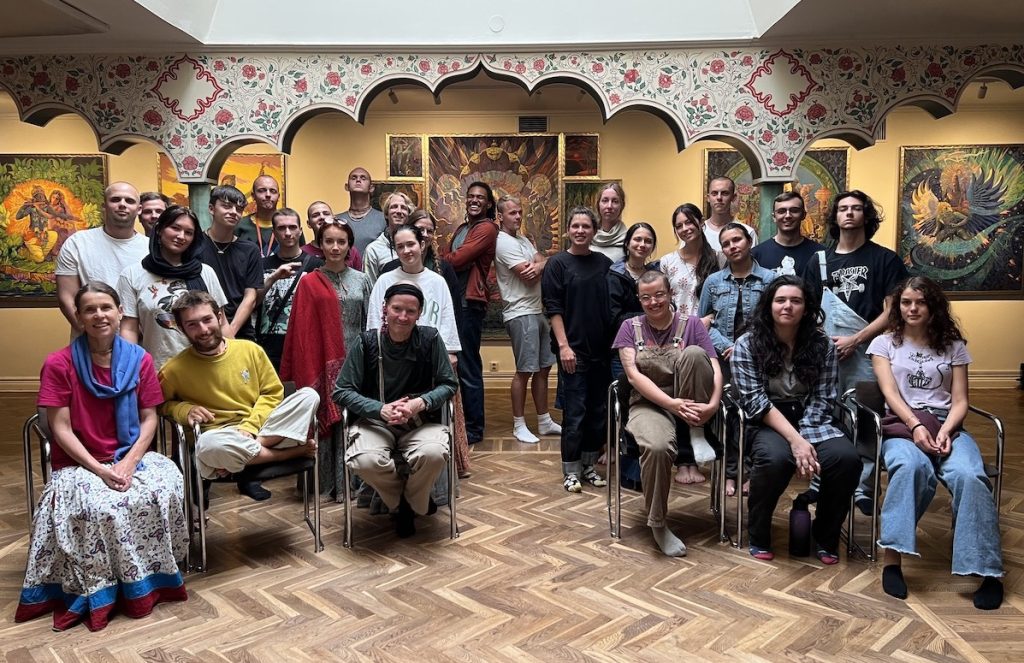
On the final day Erasmus+ opportunities and projects were presented and high interest was shown by the participants. One participant registered for an European Solidarity Corps opportunity right away in another organisation in Germany. Several expressed interest in becoming an ESC volunteer at ISKCON Almvik in the coming year or years. There were also possibilities for Youth Mobilities in respective own organisations which were also discussed.
The LTTA also supported the internationalization of our own Almvik organisation as well as that of the other partner organisations.
At the final session all participants got the opportunity to fill out the Youthpass where they reflected on their development of the key competences.
Katja Sardella
